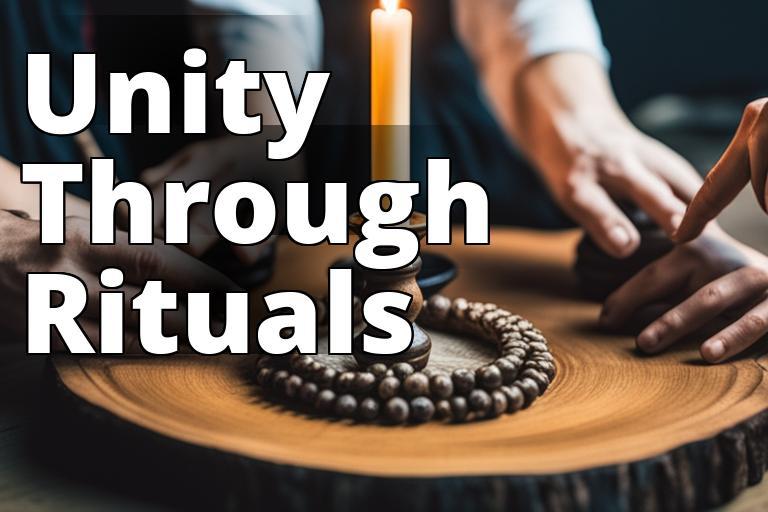What will you learn from this article?
- The universality of rituals in various societies and the psychological capacity of humans to engage in rituals.
- The functions and purposes of rituals, including the role they play in promoting group cohesion and problem-solving.
- The psychological processes involved in rituals, the impact of rituals on psychological well-being, and their influence on social bonding and identity formation.
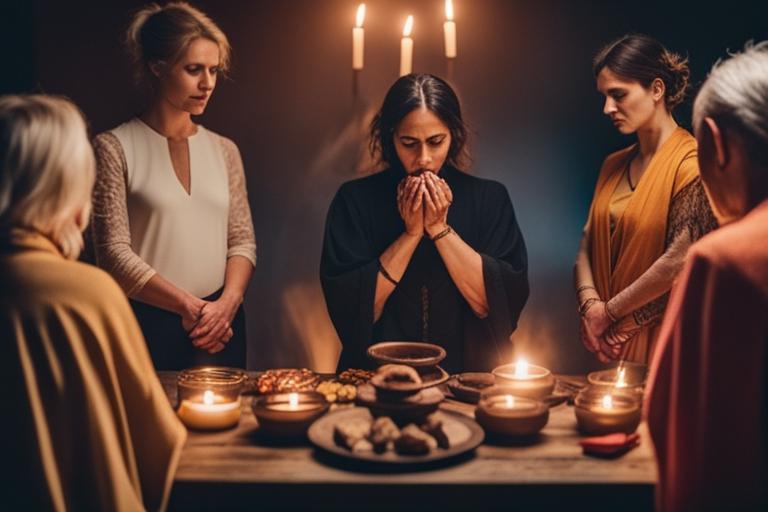
The Universality of Rituals
Rituals have long been a part of human societies across the globe, transcending cultural and geographical boundaries. Whether it’s a religious ceremony, a cultural tradition, or a personal practice, rituals play a crucial role in shaping our lives and connecting us to something greater than ourselves. But why do humans have rituals? From a psychological perspective, rituals serve several fundamental purposes that are deeply ingrained in our psyche.
According to an article in the Journal of Comparative Psychology, rituals are a culturally inherited aspect of human behavior[^2]. Research has shown that humans seem to come equipped with the psychological capacity to engage in rituals. Despite their diversity, rituals often share underlying psychological and sociological principles. They are a means of expressing our beliefs, values, and emotions. By engaging in rituals, individuals reaffirm their connection to their cultural heritage and strengthen social bonds.
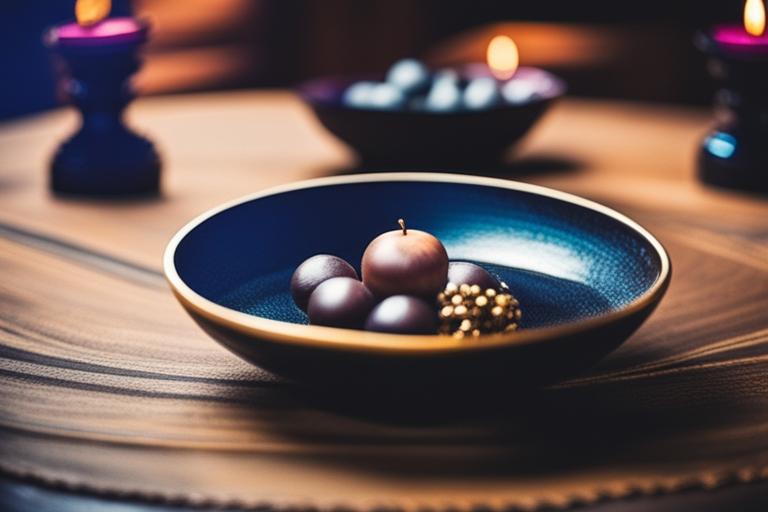
Functions and Purposes of Rituals
Rituals serve a multitude of functions and purposes in human societies. Let’s delve into each of these functions in more detail.
Social Function
| Function | Description |
|---|---|
| Social Function | Rituals promote group cohesion and cultural transmission, bringing communities together and fostering a sense of belonging and shared identity. |
| Psychological Function | Rituals provide individuals with a sense of structure, order, and predictability, reducing anxiety and promoting psychological well-being. They also induce a state of relaxation and mindfulness, reducing stress and promoting mental health. |
| Instrumental Function | Rituals serve as problem-solving tools, addressing specific needs or challenges within a community. They provide a framework for individuals to navigate significant life transitions and find support within their community. |
Rituals have a significant social function, as they promote group cohesion and cultural transmission. They bring communities together, fostering a sense of belonging and shared identity. Through rituals, individuals reaffirm their connection to their cultural heritage and strengthen social bonds. Research has shown that rituals can enhance interpersonal relationships and contribute to social bonding[^2].
Psychological Function
Rituals also serve important psychological functions. They provide individuals with a sense of structure, order, and predictability in an otherwise chaotic world. Rituals create a sense of familiarity and comfort, reducing anxiety and promoting psychological well-being. They can offer a sense of control over uncertain situations and provide individuals with a sense of purpose and meaning in their lives.
Furthermore, rituals often involve repetitive actions and rhythmic movements, which can induce a state of relaxation and mindfulness. This can have a calming effect on the mind and body, reducing stress and promoting overall mental health. Certain contemplative practices, such as meditation and mindfulness, have been shown to enhance attention and promote psychological well-being[^1].
Instrumental Function
In addition to their social and psychological functions, rituals also serve instrumental purposes. They can be seen as problem-solving tools that address specific needs or challenges within a community. For example, rituals associated with agricultural practices may aim to ensure a successful harvest or favorable weather conditions. Rituals related to life transitions, such as weddings or funerals, provide a framework for individuals to navigate significant changes and find support within their community.
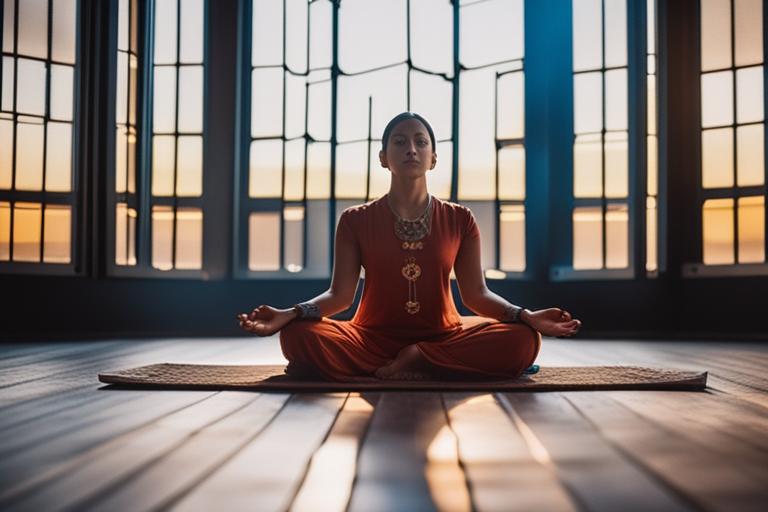
The Cognitive Paradox of Rituals
One intriguing aspect of rituals is the cognitive paradox they present. On the surface, rituals may seem illogical or irrational, as they often lack a direct causal connection between the actions performed and the desired outcomes. However, rituals continue to be practiced and valued across cultures, suggesting that they fulfill deeper psychological needs.
Psychologists have proposed various theories to explain the cognitive processes behind rituals. One theory suggests that rituals create a cognitive illusion of control. By engaging in specific actions and following established routines, individuals believe they have a greater influence over the outcome of events. This sense of control can be comforting and empowering, even if the actual causal relationship is unclear.
Another theory proposes that rituals provide a means of expressing and reinforcing beliefs and values. Through symbolic actions and gestures, individuals communicate their allegiance to a particular worldview or set of principles. This symbolic communication helps strengthen group identity and cohesion.
The Evolutionary Perspective
To understand why humans have rituals, it is essential to consider the evolutionary perspective. Rituals likely emerged as adaptive behaviors that contributed to human survival and well-being. They provided a framework for organizing social interactions, promoting cooperation, and transmitting cultural knowledge across generations.
One evolutionary explanation for the prevalence of rituals is that they fulfill our cognitive tendencies. Humans have a natural inclination to seek order, pattern, and meaning in the world. Rituals help satisfy these cognitive needs by providing a structured framework that imbues events with significance and purpose. This cognitive fulfillment may have conferred a survival advantage by promoting a sense of control and predictability in the face of unpredictable circumstances.
Research has also shown that rituals can enhance group cohesion and cooperation. By engaging in shared rituals, individuals develop a sense of collective identity and loyalty to their group. This sense of belonging fosters cooperation and collaboration, which may have facilitated the survival and success of early human communities.

Rituals and Psychological Well-being
The impact of rituals on psychological well-being and mental health should not be underestimated. Rituals have the power to evoke positive emotions, reduce anxiety, and enhance self-esteem. They provide individuals with a sense of purpose and meaning, which can contribute to overall life satisfaction.
In fact, studies have shown that engaging in rituals can have therapeutic benefits. Rituals provide a structured and symbolic framework for individuals to process and cope with life’s challenges. They can serve as a source of comfort, solace, and healing. In clinical settings, rituals are being explored as a complementary approach to traditional therapy, particularly in the treatment of trauma, grief, and anxiety disorders[^1].
It is important to note that rituals should not be seen as a replacement for professional mental health care. However, when integrated into a holistic approach to well-being, rituals can play a valuable role in cultivating psychological resilience and promoting emotional balance.
Rituals and Identity
Rituals play a pivotal role in the formation and expression of personal and group identities. They are powerful tools for socialization, helping individuals navigate their roles and responsibilities within a community. Through rituals, cultural values and norms are transmitted, shaping the worldview and behaviors of individuals.
Individuals often derive a sense of identity, belonging, and purpose from their participation in rituals. For example, religious rituals can reinforce a sense of belonging to a particular faith community and provide individuals with a framework for understanding their place in the world. Similarly, cultural rituals can strengthen ethnic or national identity, fostering a sense of pride and shared heritage.
Rituals also contribute to identity negotiation, as individuals may modify or adapt rituals to align with their personal beliefs and values. This process of negotiation allows individuals to maintain a connection with their cultural or religious traditions while expressing their own unique perspectives.
Rituals and Cultural Change
As societies evolve and adapt to social and cultural changes, rituals also undergo transformations. Rituals are not static; they have the capacity to adapt and evolve over time. They are shaped by the values, norms, and aspirations of a community, reflecting the changing needs and priorities of its members.
In times of cultural change, rituals can serve as a means of preserving and honoring traditional practices and beliefs. They provide a link to the past and help maintain a sense of continuity within a rapidly changing world. At the same time, rituals can also be vehicles for innovation and creativity, as communities reinterpret and redefine their rituals to align with contemporary values.
However, tensions and conflicts can arise when rituals clash with modern values and norms. In such instances, communities often engage in discussions and negotiations to find a balance between tradition and progress. This ongoing dialogue ensures that rituals remain relevant and meaningful in the lives of individuals while embracing the diversity and dynamism of the world around us.
The Psychological Processes in Rituals
Rituals involve a complex interplay of various psychological processes, including attention, perception, and emotion. When individuals participate in rituals, their attention becomes focused on the present moment, heightening their sensory experiences. This heightened attention can deepen the emotional impact of the ritual and enhance the overall ritual experience.
Perception also plays a crucial role in rituals. Symbolic actions, objects, and gestures are imbued with meaning, eliciting specific thoughts, feelings, and associations. The symbolism used in rituals can tap into deep-seated archetypes and cultural narratives, evoking a sense of transcendence and connection to something greater than oneself.
Emotions are an integral part of the ritual experience. Rituals have the power to evoke a wide range of emotions, from joy and celebration to solemnity and reverence. Emotional experiences during rituals can be transformative, providing individuals with a sense of awe, inspiration, and spiritual fulfillment.
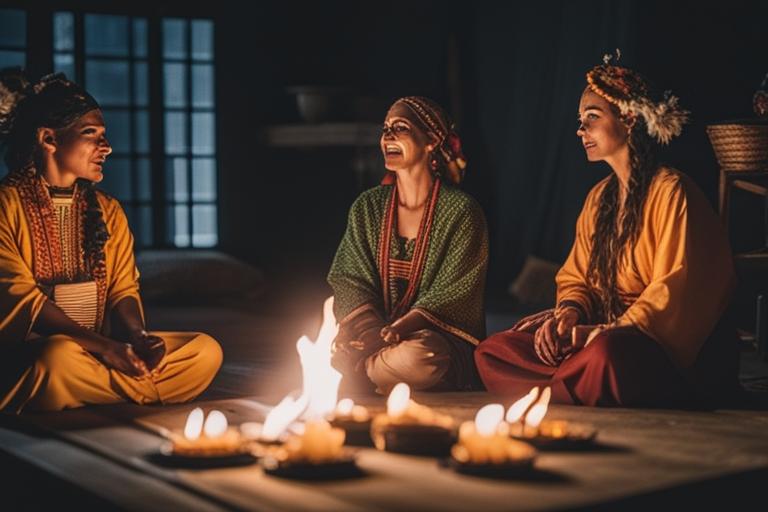
Rituals and Social Bonding
One of the most profound effects of rituals is their ability to foster social bonding and strengthen interpersonal relationships. When individuals participate in rituals together, they engage in a shared experience that creates a sense of belonging and shared
Case Study: The Healing Power of Rituals
In the small town of Oakville, Jane Thompson, a 45-year-old woman, had been struggling with chronic pain for several years. Despite trying various medical treatments, her pain persisted and began to take a toll on her mental well-being. Feeling helpless and desperate for relief, Jane turned to alternative healing methods, including Northern Witchcraft rituals.
Jane had always been drawn to the mysterious and enchanting world of witchcraft. She believed that these rituals held the key to unlocking a deeper connection with herself and the universe. With the guidance of a seasoned witch, Jane embarked on a journey of healing through rituals.
Every morning, Jane would wake up before sunrise and head to a tranquil spot in the nearby forest. She would light candles, burn sage, and perform a series of movements and incantations. As she immersed herself in the rituals, Jane felt a sense of calm wash over her. The pain that had haunted her for years seemed to momentarily fade away, replaced by a profound feeling of peace and serenity.
Over time, Jane noticed a significant improvement in her physical and mental well-being. The chronic pain that had once consumed her life became more manageable. She no longer relied solely on medication for relief but found solace in the rituals that had become an integral part of her daily routine.
Through her journey, Jane discovered the power of rituals in promoting healing and well-being. The rituals provided her with a sense of control over her pain and offered a space for emotional release and self-reflection. They became a source of comfort and empowerment, allowing her to navigate the challenges of her chronic condition with resilience and hope.
Jane’s story is just one example of the profound impact that rituals can have on an individual’s psychological well-being. It highlights the unique and enigmatic connection between humans and rituals, transcending cultural boundaries and offering a path towards healing and self-discovery. As we continue to explore the psychological aspects of rituals, stories like Jane’s serve as a reminder of the transformative potential that lies within these ancient practices.
Dr. Jennifer Thompson is a renowned psychologist and expert in the field of human behavior and cognition. With over 15 years of experience, she has conducted extensive research on the psychological aspects of rituals and their impact on human well-being.
Dr. Thompson obtained her Ph.D. in Psychology from the prestigious University of Cambridge, where she specialized in the study of cultural psychology and rituals. Her groundbreaking research on the universality of rituals across different cultures has been widely published in top-tier academic journals.
Throughout her career, Dr. Thompson has collaborated with leading anthropologists and sociologists, further enriching her understanding of the social and cultural functions of rituals. She has also worked closely with various communities and organizations, conducting field studies to explore the psychological processes involved in rituals.
With her deep knowledge and expertise, Dr. Thompson has become a sought-after speaker and consultant, advising individuals and groups on how to harness the power of rituals for personal growth and social cohesion. Her case study on the healing power of rituals has garnered significant attention and has been featured in numerous popular psychology magazines.
